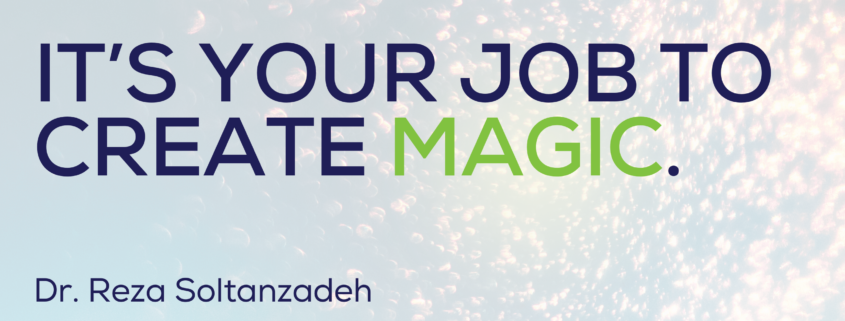When Innovation (and Profit!) Can Save the World
What if your business’ success could save the world?
That’s the underlying theme in our podcast episode with Borealis Foods CEO Reza Soltanzadeh. As a young doctor working with Doctors Without Borders, he saw first-hand the effects of poverty on health…and determined to do something about it. With Borealis Foods (NASDAQ: BRLS), he has…in the form of a humble noodle that just may be the catalyst to end malnutrition.
The key to his solution: relentless innovation!
With the pace of change in today’s business climate accelerating quickly, innovation remains vital to any work culture’s success. Reza took the standard broad strokes for innovating, then added several tweaks to help your team innovate successfully, too.
1. Reframe the question.
Often, the problem you’re facing has been defined by others—and seems intractable. Switching perspectives can make the solution suddenly obvious. While working in impoverished areas of India, the impact of poverty on health hit him hard. That sparked an epiphany: everyone defined the issue as “poverty creates hunger.” Reza realized there was another angle: poverty creates malnutrition…specifically, a lack of macronutrients and exceptionally affordable protein. That seemed more straightforward to solve.
2. Make sure you’re not the smartest person in the room.
The days of leaders having all the answers are long gone. Great leaders surround themselves with knowledgeable people. Reza recognized (to paraphrase Star Trek’s Dr. McCoy), “I’m a doctor, not a food scientist!” So, he assembled a team of experts, including food researchers, seasoned business execs, and even chef Gordon Ramsey! Their task is to develop high-protein food with efficient manufacturing so it’s super affordable and the business will thrive. That combined brain trust accomplished the mission.
3. Remember that failure must be an option.
The mission wasn’t accomplished without stumbles. No major innovation rolls to reality perfectly! It is critical to remember that. Failure is inevitable whenever you’re creating something truly new, unique, or out-of-the-box. Getting upset at failure makes your team risk-averse, and they grow less and less willing to innovate. Adopt the mind of a scientist instead: failure provides the knowledge and new data that feed your ultimate success.
4. It’s better when you’re not the center of the universe.
This is an extension of Point 2 above. In the same way you check your ego at the door when you work with your team, accept that your company can’t do it all. For example, a specialty manufacturer may have the best equipment and economies of scale to optimize your production. You may also get higher quality by sourcing raw materials from local providers as you expand to new regions. Or bring in a logistics firm to handle distribution more efficiently than you could imagine. You don’t have to reinvent every wheel: partner with other organizations to benefit from their expertise.
5. “We can figure this out.”
Attitude makes all the difference, mainly the attitude of leadership. Humans are remarkably creative creatures—“There is magic in human ingenuity,” Reza says. No problem is truly intractable. Assemble your team, forge your partnerships, and tell them you trust them. It will take time and failures, but always remind them you have every confidence that (to quote Borealis Foods’ mantra): “We can figure this out.”
Following these enhancements to the standard innovation steps, Reza and his team created the humble noodle we referenced at the beginning of this article. It’s a ramen noodle packed with 20 grams of complete protein and at a price point that makes it more affordable. Branded as Chef Woo, it can go a long way in helping the roughly 10% of the world’s population suffering from malnutrition.
What innovations will you bring to the world?
AI and Leadership Webinar Recording
Did you miss our recent webinar with Maureen Metcalf, MBA and Neil Sahota? Not to worry! The session was recorded, and you can view it anytime on our YouTube channel. Click hereto access Maureen and Neil’s expert insights about the future of leadership in the age of AI.
You can also purchase our new self-study course Leading in the Age of AI at a 20% discount here.
Dan Mushalko adapted this article from our podcast episode, Noodling Solutions for Food Insecurity.
We strive to elevate the quality of leadership worldwide. Are you ready? If you need help developing your leaders, explore our services.


Leave a Reply
Want to join the discussion?Feel free to contribute!